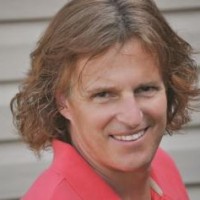What if the aches, pains and illnesses we experience are caused not just by our activities or environment, but are caused by our mindset?
That’s one of the primary ideas explored in the new book A Beautiful Medicine, A Radical Look at the Essence of Health and Healing by David Mercier.
A former Buddhist monk with decades of clinical experience as a therapist, Mercier believes that healing involves looking at people not as a collection of body parts, but as living, pulsing human beings that are connected to a greater whole.
After treating thousands of people over the years, primarily through acupuncture and individual coaching sessions, he noticed a common thread among his patients—the symptoms they brought to him often had a deeper, hidden meaning.
While Mercier concedes that some symptoms are the signs of serious illness or injury, he believes the great majority of the aches and pains we experience need to be looked at in a fresh way—as signs of deeper issues within our bodies and our souls. In his words:
The symptom is a red alert, a warning bell, a siren, a bullhorn, a flashing light on the dashboard, the wailing of a smoke alarm, a baby’s cry in the night.
Mercier believes that while our symptoms can cause us discomfort or pain, they merely point to the real problem. That’s why, whether it’s a backache, a migraine, or a case of the blues, we need to be curious about the symptom’s intent and ask ourselves:
- “What’s the message?”
- “What am I being asked to do?”
- “Is there something missing in my life that I need to add?
- “Is there something present that I need to subtract?”
He points out that symptoms are often important messages from our body and soul, but that we often blunt them through “medications, herbs, denial, overwork and alcohol” without trying to understand their purpose. So we never get to the core issue, the problem that lies behind the symptoms.
So just what do our symptoms want?
“Our symptoms are often asking us to purge our bodies of grief, resentment, fear, and sometimes, plain boredom. At other times, they ask that we take a chance, speak out and risk being unloved, or that we forgive and start loving.”
In his own practice, Mercier often finds that once he deals with the outward symptoms, he is able to talk to his patients about the true root of their problems. And they frequently relate to poor life and work choices. He explains that:
“Headaches and insomnia can come from the contours of our lives…from eating poorly and not exercising, which come from not having enough time, which comes from being too busy at work, which comes from the desire to have a certain income.”
The author blames these self-induced issues on “the myth that happiness is the freedom to indulge without limits our overindulgent lives.” We choose a lifestyle that includes “a constant work overload and a frenzied schedule,” giving us “insufficient time to do good things” for ourselves.
His message: Change starts with us. And that means having the courage to stand up and make the changes necessary to improve our lives. This could mean subtracting a negative influence or adding a positive new hobby or pursuit, including regular exercise and healthy eating. If we don’t take action, Mercier warns us that:
“Our bodies will protest. Since they can’t speak in words and sentences, they gesture with insomnia, headaches, a pain in the belly, an ache in the shoulder, a shroud of weariness.”
Mercier encourages the reader to “make things right in your life now” and here the book becomes a powerful spiritual treatise. He reminds us that “we’re here for a purpose, and that purpose is grander than our own individual designs for our lives.” To accomplish this purpose, Mercier fully believes that we’ve got to take better care of ourselves:
“When you become fit and healthy, you’re increasing the chances that the generosity of your soul will be more durable and available longer to those who need it most…(Life) demands that we are in good enough shape to do the tasks we are called to do. We must come first.”
Like elephant health & wellness on Facebook.
Ed: Bryonie Wise






Read 1 comment and reply